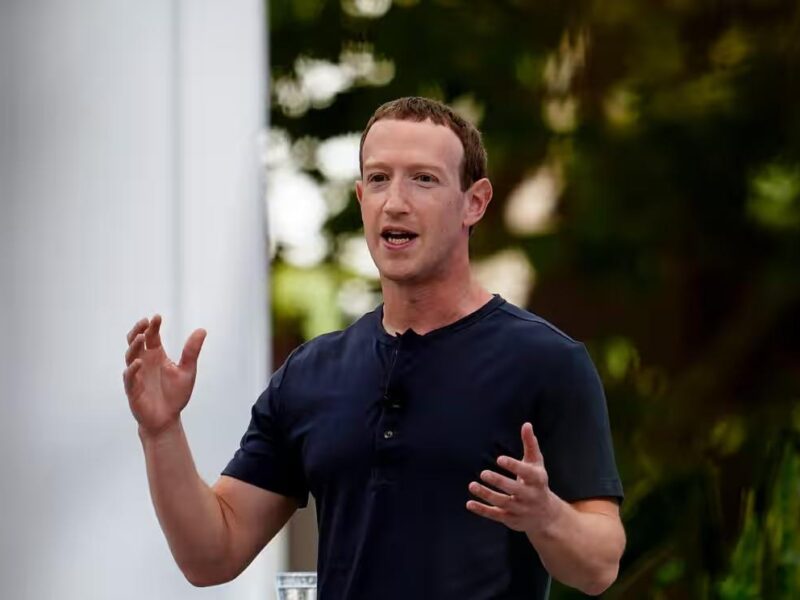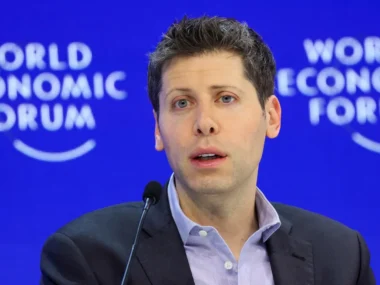Meta CEO accused of being ‘irresponsible’ by considering putting tools comparable to human intelligence open source.
Mark Zuckerberg has been accused of taking a reckless approach to artificial intelligence after vowing to developing a powerful AI system capable of rivaling human intelligence. The Facebook creator has also mentioned the possibility of making it freely available to the public.
The Meta CEO has stated that the business will attempt to build an artificial general intelligence (AGI) system and offer it open source, which means it will be available to developers outside the company. He stated that the device should be made “as widely available as we responsibly can”.
In a Facebook post, Zuckerberg stated unequivocally that the next generation of Internet services “requires building full general intelligence”.
AGI is not a formally defined term, although it typically refers to a theoretical AI system capable of performing a variety of activities at a level of intellect comparable to or beyond that of humans. The potential creation of AGI has frightened experts and politicians all over the world, who fear that such a system, or a combination of numerous AGI systems, could elude human control and endanger humanity.
Zuckerberg said that Meta will explore releasing its AGI open source, meaning it would be freely available for developers and the general public to use and change, similar to the company’s Llama 2 AI model.
“This technology is so important and the opportunities are so great that we should open source and make it as widely available as we responsibly can, so everyone can benefit,” he went on to say.
Dame Wendy Hall, a computer science professor at the University of Southampton and a member of the UN’s AI advisory committee, described open source AGI as “really very scary” and said Zuckerberg’s consideration of it was irresponsible.
“The thought of open source AGI being released before we have worked out how to regulate these very powerful AI systems is really very scary,” she went on to say. “In the wrong hands, technology like this may cause significant harm. It is quite irresponsible of a firm to suggest it.”
Hall continued, “Fortunately, I believe it will be several years before such an aim [AGI] is accomplished in any meaningful fashion, so we have time to put the regulatory systems in place. However, it is critical that we move this job forward with some hurry in order to ensure public safety.
Meta was one of the tech companies at a worldwide AI safety summit in the United Kingdom last year that agreed to allow governments to test artificial intelligence capabilities before and after they were released.
Another UK-based expert stated that open sourcing an AGI system should not be left to a tech company’s discretion.
“There are deep and complex arguments about the merits of open-sourcing current AI models; pushing that into the realm of AGI could be world-saving or catastrophic,” said Dr. Andrew Rogoyski, director of the University of Surrey’s Institute for People-Centered AI. “These decisions need to be taken by international consensus, not in the boardroom of a tech giant.”
In an interview with the tech news website the Verge on Thursday, Zuckerberg said he would lean toward open sourcing as long as it made sense and was the “safe and responsible thing to do”.
Some experts, including Hall, criticized Meta’s move last year to open source Llama 2, stating that it was “a bit like giving people a template to build a nuclear bomb”.
OpenAI, the California-based developer of ChatGPT, is also developing AGI, which it describes as “AI systems that are generally smarter than humans,” while Demis Hassabis, the leader of Google’s AI branch Google DeepMind, has stated that AGI could be less than ten years away.
OpenAI’s CEO, Sam Altman, warned at the World Economic Forum in Davos, Switzerland, this week that future improvements in AI will be unachievable without a breakthrough in energy provision, such as nuclear fusion.
Zuckerberg did not specify a timeline for establishing an AGI system, but he did mention Meta having developed a “absolutely massive amount of infrastructure” to create new AI systems. The corporation has ordered a large quantity of AI processing chips. According to Zuckerberg, production on a sequel to Llama 2 is also underway.











